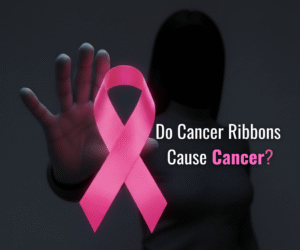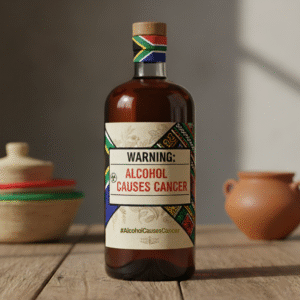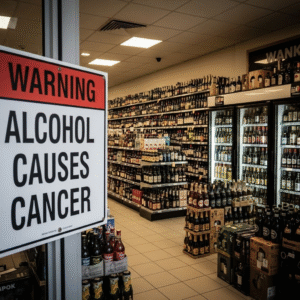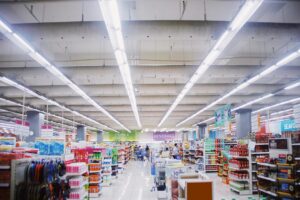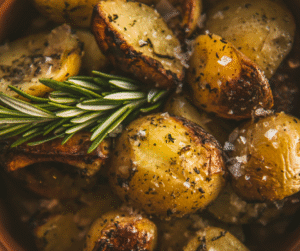The Rise of Cancers in the Young: Is Your Supermarket Selling Cancer?
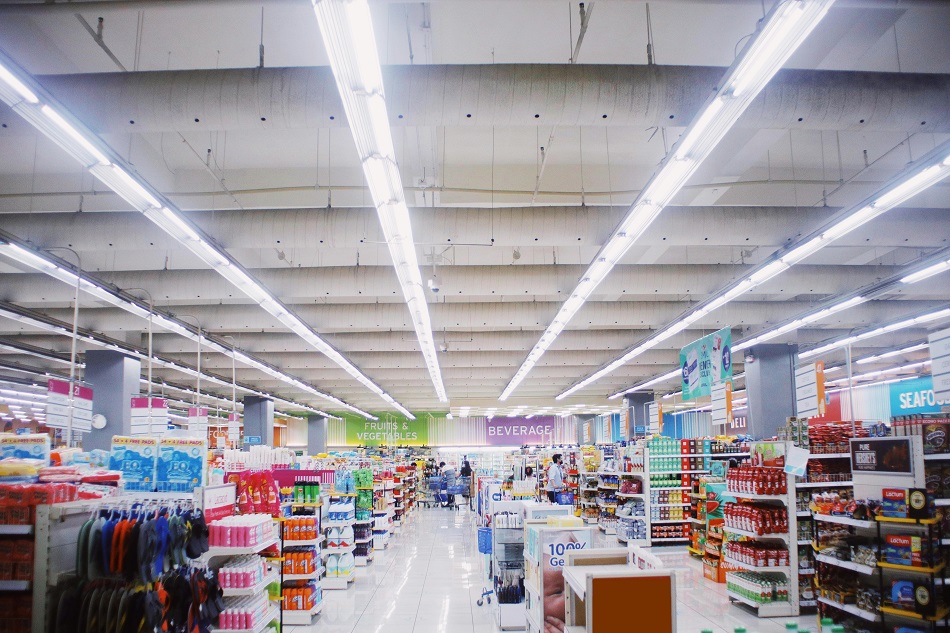
Credit: Ian Panelo | Pexels
The epidemic rise in preventable cancers, particularly among young adults, highlights a crisis of public health prioritisation, where performative awareness supersedes substantive cancer prevention. JoziStyle asserts that real prevention demands collective intervention by holding purveyors—specifically the supermarket industry and healthcare system—accountable for marketing and packaging choices (like ultra-processed foods and plastic bags) that expose consumers to preventable risks, making consumer awareness alone insufficient against a rigged system.
The Frightening Epidemic of Cancer in a Bag
The pivot from breadcrumbs and pickles brings me to the next critical topic: what I honestly believe is cancer in a bag. Because real prevention demands a collective intervention far beyond our kitchen counters. I am not talking about the unhealthy foods themselves; I am talking about the packaging that our food comes in. And this is something that alarms me profoundly.
Every year—no, every month—we have cancer awareness days, and yet the numbers keep rising, especially among young adults. This is not primarily genetic. My own experience, having survived cancer, and having lost so many people I have loved and cared for to this disease, gives me an informed, angry opinion. I am not fighting for myself; I am fighting for the future generations.
Awareness vs. Outcome
It amazes me that we have Breast Cancer Awareness Month in October, and Prostate Awareness Month in November. Every single month, there is some kind of ribbon to remind you of cancer awareness. But we are not doing much to talk about cancer prevention.
It seems to me that cancer prevention is getting lost in the noise of performative awareness, where everybody is concerned with the optics of cancer awareness, but nobody is really paying attention to the outcomes. We must admit that hashtags can trend for a day, but they do not prevent cancer. And while South Africa’s public healthcare is collapsing—a conversation for another day—we need to focus on prevention and holding the purveyors of cancer accountable, not its victims.
The Economic Argument for Prevention
There are staggering statistics on the prevalence and cost of cancer. One in five people, 20% of all people, will get cancer in their lifetime. And 10% of people will die from a cancer they never anticipated getting. When you look at those numbers, if there are four people in your house, the statistic is going to hit somebody close to home, living under the same roof as you.
The cost of cancer is running into billions. This is not going to cost government money; it is going to cost the taxpayer. Ironically enough, saving lives might not appeal to everybody, but saving money will appeal to everyone. Prevention is quicker, cheaper, and easier than cure. The healthcare industry must advocate for prevention with the same urgency it advocates for treatment—the big ticket items like chemo, radiation, and surgery, which the pharma industry makes a lot of money from.
The Supermarket Illusion: Rigged Choices and Hidden Hazards
It begins with your grocery shopping. People can argue that cancer prevention is common sense, but the fact is, it is a team effort. The real fight begins by holding the suppliers accountable, and I am going to place a fair responsibility on supermarkets.
The Illusion of Choice
Supermarkets create the illusion of choice. But if you walk into any supermarket, I guarantee that barely 10% of the aisles or floor space is dedicated to questionably healthy food. (I use air quotes there, because how many pesticides and chemicals have been sprayed over those fresh fruits and vegetables before we eat them?) The balance of the store is stacked high with ultra-processed food—food that has an extended shelf life because of chemicals, preservatives, and artificial flavouring. And here is the kicker: if the ingredients do not kill you, the packaging just might.
Subsidised and Normalised Danger
Supermarkets do not just reflect our choices; they cater to them. We vote with our money, but this is a tricky slope to slide down because when it comes to long-life convenience foods, the ultra-processed foods with little nutritional value are often incentivised. I am not suggesting that the supermarket is solely responsible. But the reality, which informed opinion confirms, is that the system is rigged in favour of the shop, not the shopper. This is why the Cancer Project on JoziStyle advocates for a fundamental shift in purchasing habits.
The Call to Action: Shopping for Healthier Packaging
I am putting out a strong call to action to all JoziStylers. As much as I advocate for healthy eating and encourage you to buy as healthily as possible, I am going to encourage you to start shopping for healthier packaging.
Saying No to Plastic Bags and Tins
It is very convenient for me to say this, because I very seldom buy convenience food; I prefer buying fresh, and I can cook. I do not need the convenience of frozen chips or tinned goods. But I understand life is busy, and often if you are shopping, you do not really have time to think. You are swayed by price, because it is cheaper to buy something with a longer shelf life than something you will probably throw away at the end of the day.
However, I challenge JoziStylers: shop as healthily as you can, buy fresh as much as you can. But if you do have to compromise, start looking at the packaging. Stop buying food in tins. Stop buying food in plastic bags. This is why I often praise Food Lovers Market, by the way; they do not put things in a bag at the till, which is one less plastic bag to worry about. I also enjoy that I do not have to buy bulk—a bag of apples in a plastic bag—or frozen stuff in a plastic bag (ironically, I always have a packet of frozen peas because I am not going to start shelling peas any sooner than I am going to start shucking oysters).
We go with the flow, but because I want you to live the longest, healthiest life possible, you must start shopping for healthier food and healthier packaging. Cancer prevention cannot be left to common sense anymore because the grocery shopping experience is rigged. Do not trust your supermarket to give you healthier choices; spend with your money. Because whether you ask for it or not, supermarkets will start catering to your preferences if the bottom line is affected.
On that note, I encourage you to read Cancer in a Bag, Real Prevention Demands Collective Intervention. And that includes me, you, your supermarket, your government, and your medical aid. It includes everybody.
Do you agree that the packaging choices of supermarkets are the new frontline in the fight for public health?
Subscribe to JoziStyle, follow us online and listen to us on air.
